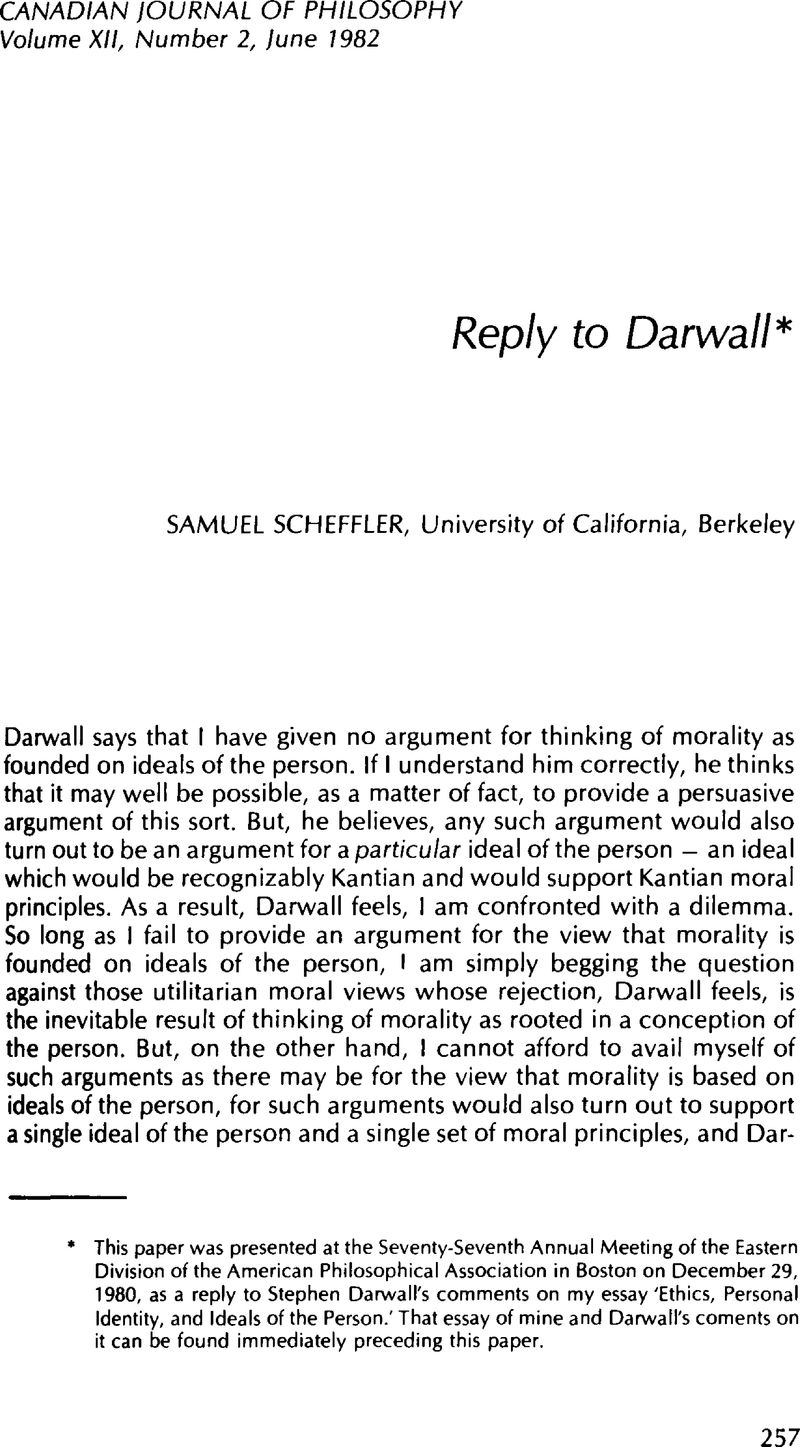No CrossRef data available.
Published online by Cambridge University Press: 01 January 2020

This paper was presented at the Seventy-Seventh Annual Meeting of the Eastern Division of the American Philosophical Association in Boston on December 29, 1980, as a reply to Stephen Darwall's comments on my essay ‘Ethics, Personal Identity, and Ideals of the Person.’ That essay of mine and Darwall's coments on it can be found immediately preceding this paper.
1 ‘Scheffler on Morality and Ideals of the Person,’ this issue, 254
2 Ibid.
3 ‘Ethics, Personal Identity, and Ideals of the Person,’ this issue, 246
4 ‘Moral Scepticism and Ideals of the Person,’ The Monist, 62 (1979) 303n
5 Thus the suggestion that moral conceptions may be thought of as rooted in ideals of the person, though prompted by reflection on the actual role of morality in human life, is not intended as a purely descriptive proposal. If some culture turned out to have a system of norms of conduct which could in no way be seen as expressive of an ideal of the person, or if some traditional philosophical conception of morality were such that it embodied no ideal of the person whatsoever, that would not falsify the proposal. Rather, if the proposal were accepted, those cultural norms or philosophical conceptions would be regarded as ‘moral’ only in a degenerate sense.
6 I discuss what I take to be the more natural kind of motivation for a view like utilitarianism in The Rejection of Consequentialism (Oxford: Oxford University Press 1982).
7 ‘Scheffler on Morality and Ideals of the Person,’ this issue, 254
8 Ibid.